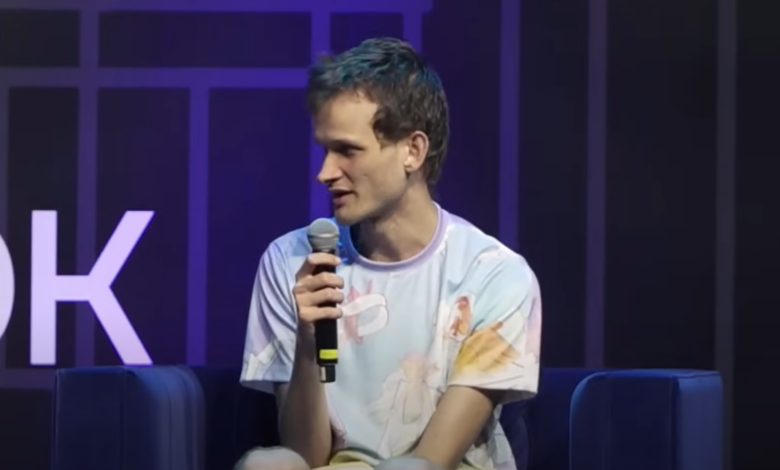
Vitalik Buterin’s Vision for a Safer Future with AI
Vitalik Buterin, the co-founder of Ethereum, has shared an extensive vision for a transformative future driven by “decentralized and democratic differential defensive acceleration.” He cautions against the existential risks posed by superintelligent AI, urging humanity to balance the acceleration of protective technologies with enhanced openness and robust regulatory frameworks.
Ethereum Co-Founder Warns of AI Perils
In a recent blog post, Buterin stresses that the potential arrival of artificial superintelligence in as little as five years necessitates a careful approach. “The default outcome isn’t automatically favorable,” he notes, highlighting the shrinking margin for error. To prevent catastrophic scenarios, he advocates for the acceleration of beneficial technologies while simultaneously imposing powerful regulations, even if it means unsettling influential entities.
Striking a Balance: Technological Progress and Preparedness
Buterin emphasizes the necessity of equilibrium between rapid technological advancement and readiness. He urges the development of technologies that enhance safety without relying on the assumption that benevolent forces are in control. A reckless arms race in AI or biotech could empower military forces or malicious actors, he warns.
He envisions a future where decentralized, community-driven defenses render potential disasters non-threatening, thanks to innovations like open-source air monitoring and instantly updated vaccine codes. “Technologists are increasingly aware of each other’s work,” he observes, suggesting that the principles that inspired Ethereum and cryptocurrency can be applied to the broader world.
The Core of Buterin’s Defense Strategy
The crux of Buterin’s defense plan lies in advancing “decentralized and democratic differential defensive acceleration” (d/acc), which prioritizes empowering individuals over governments or corporations in resource allocation. He advocates for coalition building to avert a “war of all against all” and prevent a scenario where only the strongest prevail.
He critiques centralized authority in AI management, citing the COVID-19 pandemic as an example of potential failures from centralized control. “Heavy-handed central control often leads to catastrophic outcomes,” he asserts.
Strategies for AI Defense
Liability as a Regulatory Measure
Buterin proposes two legal and regulatory strategies to mitigate advanced AI risks. First, he suggests imposing liability on users, arguing that this would incentivize responsible AI use. While he acknowledges challenges with open-source models and powerful militaries, he believes liability remains a versatile approach that encourages transparency without stifling innovation.
Global ‘Soft Pause’ Button
His second, more audacious proposal involves a global “soft pause” on industrial-scale hardware. Specialized chips in powerful computing machines would require weekly signatures from international bodies. This measure aims to maximize benefits while minimizing risks, offering humanity time to respond if AI threats spiral out of control.
Buterin acknowledges the difficulty of achieving global consensus on such measures, emphasizing the need for cooperation rather than domination by a single power.
Integrating Ethereum Values into AI Defense
Buterin ties his AI risk strategies to Ethereum’s ethos of open-source development and decentralized governance. Collaboration tools like prediction markets and privacy mechanisms such as ZK-SNARKs can combat misinformation effectively. Technologies like formal verification and secure hardware modules serve as foundational elements for a robust cyber-defense layer.
He envisions bio-defense, cyber-defense, and “info-defense” as critical components of a protective infrastructure that the Ethereum community can help build.
Funding Decentralized Security Projects
Buterin explores funding mechanisms for decentralized, security-focused projects, advocating for “strong decentralized public goods funding” to ensure open-source vaccines, biotech, and encryption tools thrive. He introduces “deep funding,” where AI models aggregate human evaluations to determine project eligibility for financial support.
Avoiding Centralized or Defensive Extremes
Buterin warns against purely defensive or centralized strategies, arguing that halting technological progress incurs immense costs and fails to deter rogue actors. He criticizes strategies that overly rely on central authorities, citing the World Health Organization’s initial denial of airborne COVID-19 transmission as a cautionary example.
The Ethereum co-founder concludes by emphasizing technology’s dual nature as both a threat and an empowerment tool, depending on its handling. “Humans remain the brightest star,” he declares, advocating for global coordination, open-source collaboration, and defense-focused acceleration as keys to navigating a century of potential superintelligent AI and breakthrough innovations.
At the time of writing, Ethereum is valued at $3,639.







